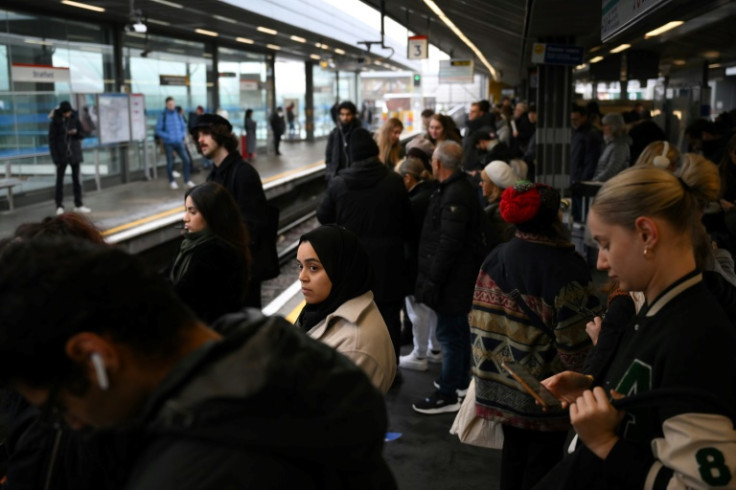UK inflation slows, remains close to 11 percent
British inflation slowed more than expected in November but remained near the highest level in more than 40 years, official data showed Wednesday, as a cost-of-living crisis sparks fresh UK strikes.

British inflation slowed more than expected in November but remained near the highest level in more than 40 years, official data showed Wednesday, as a cost-of-living crisis sparks fresh UK strikes.
The consumer prices index eased to 10.7 percent last month, the Office for National Statistics (ONS) said in a statement, against expectations of a drop to 10.9 percent.
The ONS said motor fuel prices had risen at a slower pace than a year earlier.
October's annual inflation rate had stood at 11.1 percent, the highest level since 1981, after energy prices and food bills soared across the world this year on supply constraints caused by Russia's invasion of Ukraine and the lifting of pandemic lockdowns.
Wednesday's data comes amid crippling UK industrial action by public and private sector workers demanding higher wages.
Railway staff were staging a two-day national strike due to end Wednesday, kicking off a month of walkouts involving professions from nurses to passport control and postal workers that spells Christmas misery for millions of Britons.
November's inflation data was meanwhile published on the eve of an interest rate decision from the Bank of England, which is widely expected to deliver its ninth hike in a row as policymakers try to tackle rampant prices.
Economists expect the BoE will lift its key lending rate to 3.5 percent from 3.0 percent on Thursday, further squeezing Britons' disposable incomes with rising loan costs.
Inflation is still running at more than five times the central bank's official target level of two percent.
"Although still at historically high levels, annual inflation eased slightly in November," noted ONS chief economist Grant Fitzner.
"Prices are still rising, but by less than this time last year, with the most notable example of this being motor fuels."
Reacting to the data, finance minister Jeremy Hunt said "getting inflation down so people's wages go further" was his "top priority".
Prime Minister Rishi Sunak's Conservative government insists that inflation-busting pay hikes would worsen inflation.
Nurses meanwhile are set to walk out for the first time in their union's 106-year history on Thursday.
Britain remains on course for a long-lasting recession on fallout from the highest inflation in decades, despite this week's news that the country's economy grew in October.
The government and BoE have each said they believe Britain is already in a recession that the bank expects to last all next year.
While Wednesday's data "doesn't constitute a new trend, it is a move in the right direction and comes as inflation in the US, and the eurozone shows signs of cooling", said Fawad Razaqzada, market analyst at City Index trading group.
The Federal Reserve and European Central Bank are both expected to announce less aggressive interest rate hikes in the next 24 hours compared with their recent monetary policy decisions.
"Inflation may be past the peak but given that prices for UK consumers have scaled a mountain, there is still a vertiginous descent to navigate before it's back down to less dangerous levels," said Susannah Streeter, senior investment and markets analyst at stockbroker Hargreaves Lansdown.
The ONS added Wednesday that the retail prices index -- the inflation measure that includes mortgage interest payments and is used by trade unions and employers when negotiating wage increases -- eased to 14 percent in November.

© Copyright AFP 2025. All rights reserved.




















